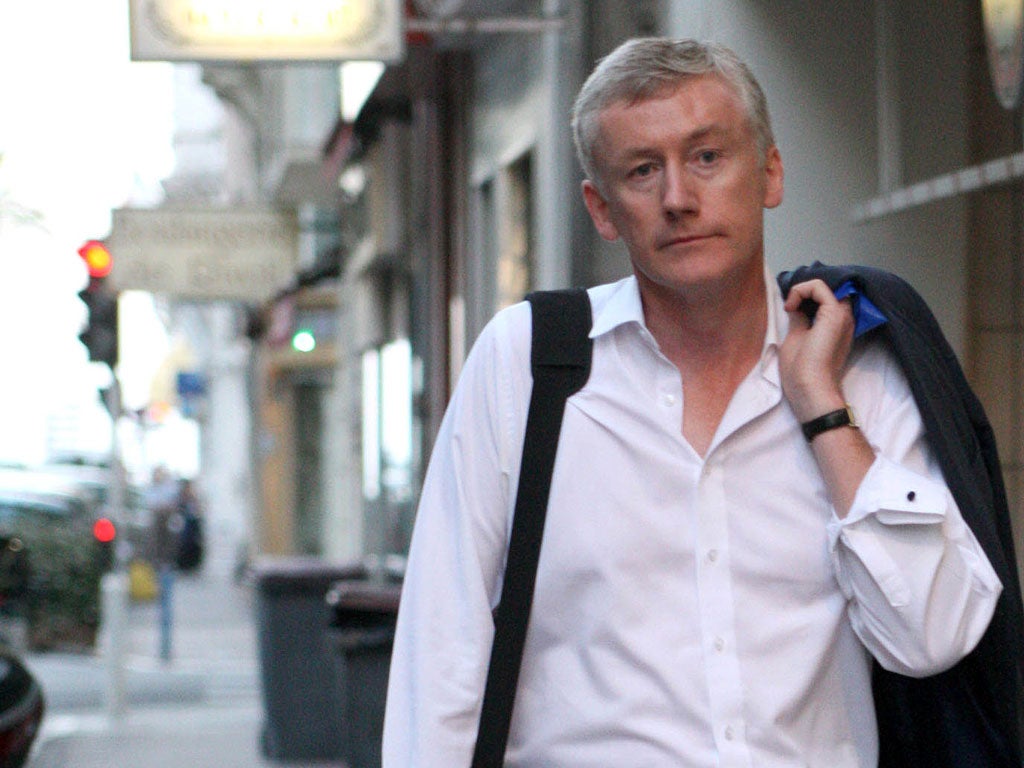Goodwin's honour was upheld in 2009.So what changed?
News that knighthood got clean bill of health after collapse of RBS fuels row about 'political' decision

Your support helps us to tell the story
From reproductive rights to climate change to Big Tech, The Independent is on the ground when the story is developing. Whether it's investigating the financials of Elon Musk's pro-Trump PAC or producing our latest documentary, 'The A Word', which shines a light on the American women fighting for reproductive rights, we know how important it is to parse out the facts from the messaging.
At such a critical moment in US history, we need reporters on the ground. Your donation allows us to keep sending journalists to speak to both sides of the story.
The Independent is trusted by Americans across the entire political spectrum. And unlike many other quality news outlets, we choose not to lock Americans out of our reporting and analysis with paywalls. We believe quality journalism should be available to everyone, paid for by those who can afford it.
Your support makes all the difference.The committee responsible for annulling honours rejected the idea of stripping Fred Goodwin of his knighthood a year after the financial crash.
The revelation will fuel suggestions that Tuesday's move to annul Mr Goodwin's honour was politically motivated, with pressure being brought to bear on the committee – made up of senior civil servants – by David Cameron.
Cabinet Office sources confirmed that the Forfeiture Committee discussed removing Mr Goodwin's honour in 2009 after more than 70 MPs signed a Commons motion calling for the move. But it concluded the strict rules surrounding the forfeiture of honours prevented it from acting.
Yesterday the Prime Minister's spokesman refused to say whether Mr Cameron had asked the committee to investigate removing the honour. He would only say it was the committee's decision to launch the investigation.
Last night the former Chancellor Alistair Darling said the fact that the committee had met before and taken no action suggested the latest decision was driven by politics, not the proper procedures. "The Prime Minister seems to have picked on Fred Goodwin, referred him to the committee and then 10 days later they find him guilty.
"If the facts had changed then it would be quite proper for the Forfeiture Committee to look at the case again. But nothing has changed. He has not been convicted of an offence or been disciplined by a professional body which are the criteria for removing honours."
In its statement yesterday the Cabinet Office suggested that it was relying on the Financial Services Authority's report into the banking collapse and a subsequent Treasury Select Committee investigation for the move.
But the FSA report, while critical of the Royal Bank of Scotland board, did not single Mr Goodwin out for censure.
Giving evidence last month to the Treasury Select Committee Bill Knight, one of the FSA report's two external supervisors, said there was "no evidence" of Mr Goodwin's incompetence. He added that the report, overall, did not amount to censure of Mr Goodwin.
Sir Tom McKillop, who was chairman of RBS during Mr Goodwin's time, still has his knighthood. Last night Cabinet Office sources added it was not intending to look at the honours of other individuals involved in the banking crisis.
While David Cameron and Ed Miliband both welcomed the decision to strip Mr Goodwin of his knighthood other politicians were more critical. The former Trade minister, Lord Digby Jones, said the move had the "whiff of a lynch mob about it". "This man may be right or wrong but he has not been convicted of a criminal offence. Now, under a lot of political pressure, they're saying, 'We'll change the rules retrospectively and we're going to take this man's honour away from him.' Where does this stop?"
Lord Jones said Fred Goodwin was not the only knight at RBS who could be blamed. "You know there were other knights on that board of RBS that did this; there were knights at the FSA, who said 'Yeah, it's OK'; there were knights who were running the pension funds who were the investors in the company.
"What we need to know is what changed between 2009 and this year. But because it's a secretive system we have not been told if there was new evidence or if it was simply political pressure which was brought to bear."
Scotland's First Minister Alex Salmond said the decision to strip Mr Goodwin of his honour was a distraction. "What about all the other people who are keeping their honours who were also involved in the financial collapse?" he asked.
Join our commenting forum
Join thought-provoking conversations, follow other Independent readers and see their replies
Comments